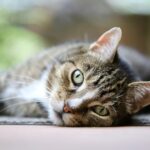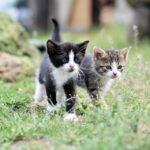Cats have long been associated with the image of drinking a saucer of milk, a scene so pervasive that it has seeped into the very fabric of popular culture. However, as tempting as it may be to pour a refreshing bowl of cow’s milk for your feline friend, the reality is that it might not be in their best interest. In this article, we will explore in depth why cats shouldn’t drink cow’s milk, the biological reasons behind it, and what healthier alternatives are available for your beloved pet.
The Myth of Cats and Milk
Cultural Perceptions
The image of cats lapping up milk often stems from early animations, cartoons, and even literature. This portrayal has led many cat owners to believe that giving their pets milk is a treat, a reward, or even a comforting ritual. However, this cultural perception has not taken into account the unique dietary needs of felines or the scientific facts that undermine this belief.
The Misunderstanding of Lactose Intolerance
The primary reason many cats should avoid cow’s milk is due to lactose—a sugar found in milk. Most adult cats (around 90% of them, according to various studies) are lactose intolerant. This means that their bodies do not produce enough of the enzyme lactase, which is required to break down lactose into glucose and galactose for absorption. Instead of digesting dairy, these cats will experience gastrointestinal upset, leading to symptoms such as diarrhea, vomiting, and stomach cramps.
The Biology of Cats: Understanding Lactose Intolerance
Why Cats Are Lactose Intolerant
Kittens are born able to digest their mother’s milk due to the presence of lactase in their bodies. As they grow, however, they become less reliant on lactose as a source of nutrition and, consequently, their production of lactase decreases. By the time they reach adulthood, many cats have little to no lactase activity left, rendering them lactose intolerant.
Evolutionary Perspective
From an evolutionary standpoint, the transition from dependency on mother’s milk to a more carnivorous diet means that most adult cats cannot handle lactose well. Unlike dogs, who have adapted with their long history of domestication to consume a more varied diet, cats are obligate carnivores. Their natural diet consists of protein from meat, and they have not evolved to digest dairy products effectively.
Health Risks of Dairy Consumption in Cats
Gastrointestinal Upset
As mentioned earlier, lactose intolerance can cause a variety of gastrointestinal issues. Feeding a cat cow’s milk can lead to:
- Diarrhea: The undigested lactose draws water into the intestines, leading to diarrhea.
- Vomiting: The stomach may react negatively to dairy, causing nausea and vomiting.
- Stomach Cramping: Ingesting lactose can lead to painful contractions in the intestines, resulting in cramps.
Allergies and Sensitivities
Aside from lactose intolerance, some cats may also suffer from milk allergies. These allergies can manifest in skin irritation, itching, or gastrointestinal distress. Symptoms might include:
- Itchy skin: This can lead to excessive grooming and subsequent skin infections.
- Digestive issues: Similar to lactose intolerance, allergies can cause bloating, gas, or diarrhea.
Obesity and Diabetes
Cow’s milk is high in calories and fat when compared to a cat’s typical dietary needs. Regularly feeding cow’s milk—despite its popularity as a treat—can contribute to obesity. Excess weight can subsequently lead to health issues such as diabetes, joint problems, and cardiovascular concerns.
Nutritional Value of Cow’s Milk for Cats
Lack of Essential Nutrients
While cow’s milk contains some vitamins and minerals, it lacks several essential nutrients that cats need for optimal health. Notably:
- Taurine: This essential amino acid is vital for heart function, vision, and reproduction. Cats must obtain taurine from meat sources; cow’s milk does not satisfy these needs.
- High Phosphorus Levels: While phosphorus can be necessary, excessive amounts can lead to renal issues, especially in older cats.
- Low Protein Content: Cats need a high-protein diet for energy and muscle development. Cow’s milk does not offer the right kind of protein cats require.
Better Alternatives for Feline Hydration
If your cat seems enamored by the taste of milk, consider offering alternatives that can soothe their cravings without the downsides. These options can be dairy-based alternatives formulated specifically for cats and are lactose-free.
Kitty Milk: There are specially formulated milks available at pet stores that are lactose-free. These products allow your cat to enjoy a creamy beverage without the risks associated with cow’s milk.
Bone Broth: This is a nutritious treat that many cats love. It’s hydrating and packed with benefits, including glucosamine, which can support joint health.
Water: Always the best hydration option, ensuring your cat has unlimited access to fresh water is essential for their overall health.
Wet Cat Food: Contains moisture that aids in hydration, which can be beneficial for urinary health.
Practical Tips for Cat Owners
Educate Yourself
Understanding your pet’s dietary needs is critical. Always consult with your veterinarian before making any significant changes to your cat’s diet or introducing new foods, especially anything that may raise concerns about allergies or sensitivities.
Read Labels
When purchasing any cat food or treats, be aware of the ingredients. Look for products that cater to your cat’s specific nutritional needs, ensuring they are high in protein and low in carbohydrates and additives.
Monitor Your Cat’s Reaction
If you choose to give your cat a lactose-free milk or treat for the first time, monitor their behavior and digestion afterward. This can help you identify any potential issues that could arise from new foods.
Conclusion: The Takeaway
The notion that cats should drink cow’s milk is rooted in misconceptions that have perpetuated over years of cultural representation. In reality, most cats are lactose intolerant and do not benefit from the consumption of cow’s milk. Instead, providing species-appropriate foods and treats designed for cats will help you ensure that your feline friend stays healthy and happy.
Emphasizing the importance of proper nutrition will not only support your cat’s well-being but also strengthen the bond between you and your furry companion. Make informed choices, and prioritize their dietary needs to ensure they live a long, vibrant, and healthy life.
In a world brimming with myths and misconceptions, let’s set the record straight: Cats are not meant for dairy and certainly shouldn’t be drinking cow’s milk. Stick to water and cat-friendly alternatives to keep your pet flourishing.
Featured Image Credit: Pixabay


